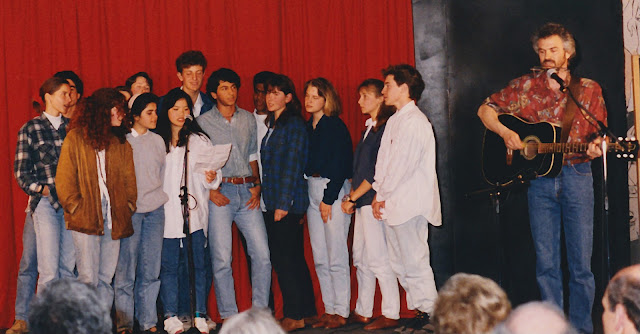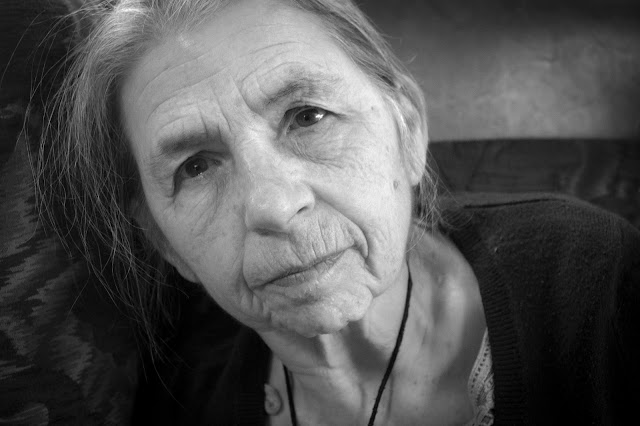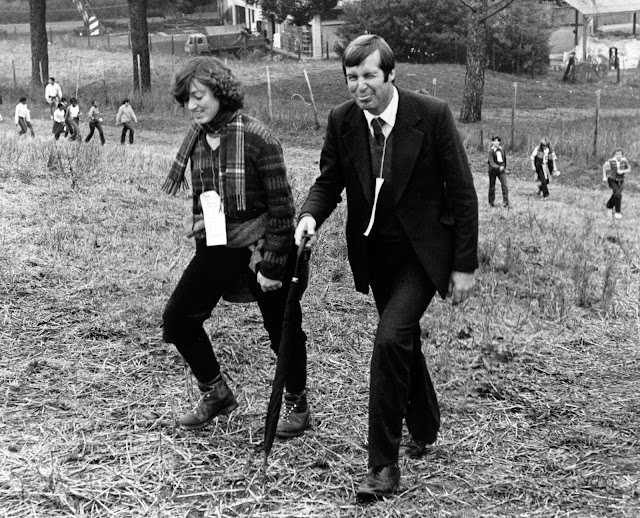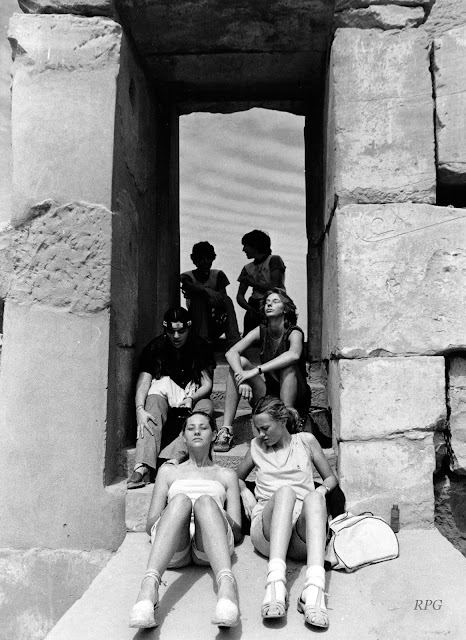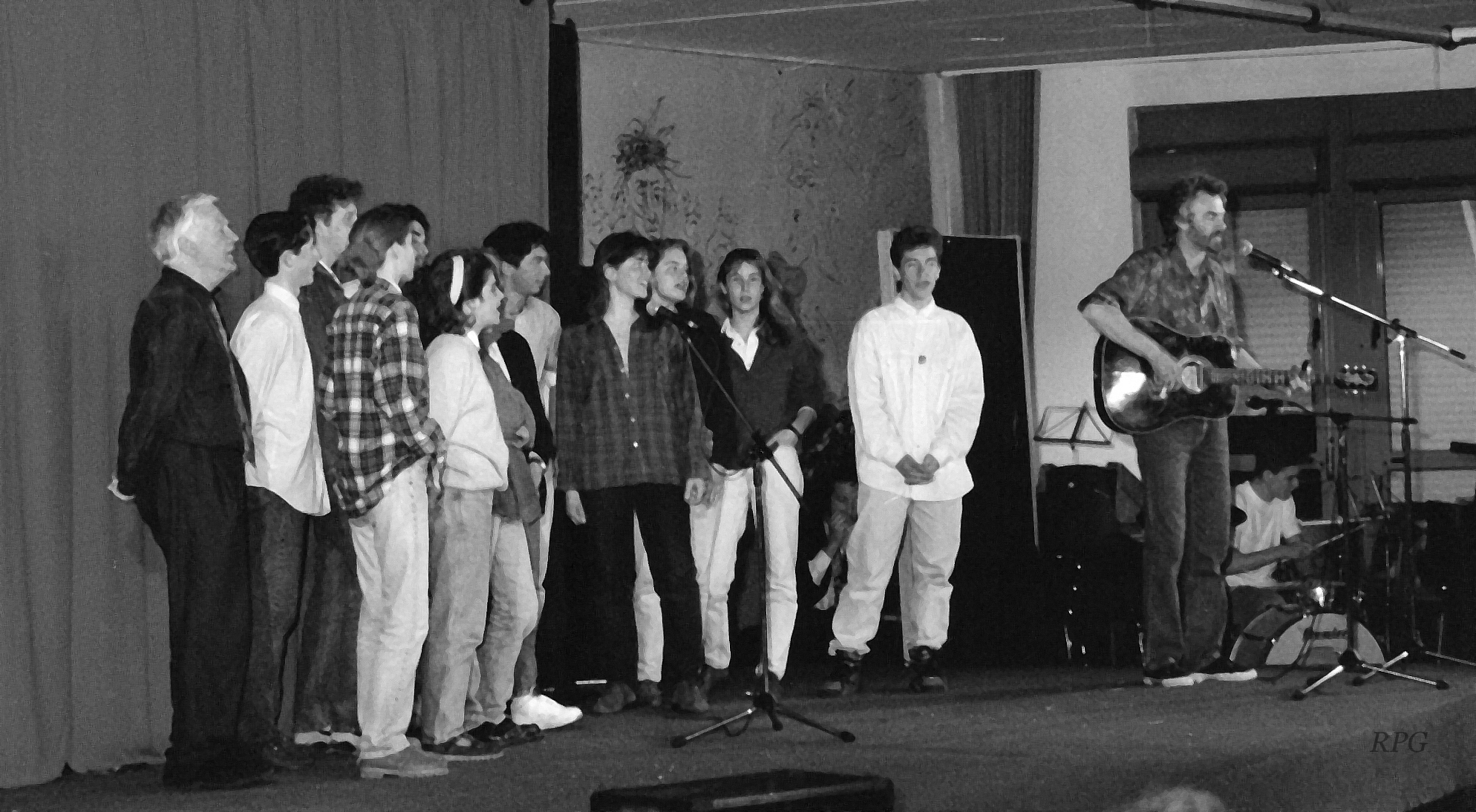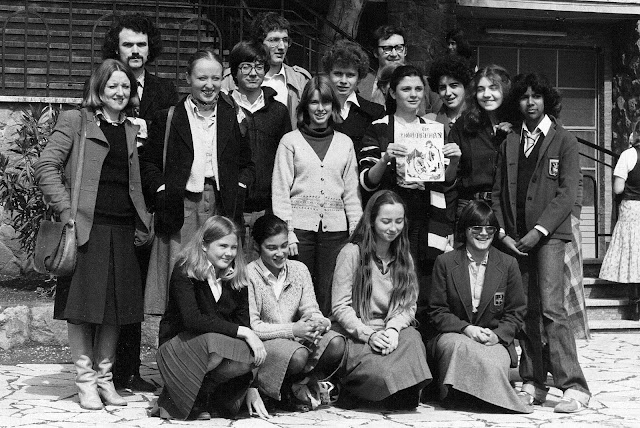Byron in Italy
I wrote this article in 1983, and it was published (in English and Italian) in the second number of the first volume of the Sheraton Italia Magazine, with the following (slightly fanciful) by-line:
English-born Richard Gibbs has been living and working for the past seven years in Rome. He is a professor of English Literature, a free-lance journalist and one of the owners of a new English pub, located on Via della Madonna dei Monti (near Via Cavour) in the historical centre of Rome.
I had a particular interest in Noel, George Gordon, 6th Baron Byron of Rochdale, as in 1980 I had named one of four new Houses at St George’s English School (where I taught) after him. The then Headmaster, Hendrik Deelman, decreed that, among other criteria, the names (of the houses) should preferably be of people, probably historical figures, with whom pupils will be proud to be associated and about whom much of interest can be said......
When I proposed Byron for mine (the others were Drake, Livingstone and Newton) the Headmaster objected and attempted to block my choice. I insisted, however, on the grounds that despite a physical handicap (he was born with a short Achilles’ tendon which made running difficult) Byron achieved great physical feats in swimming and riding in particular, and not only supported Italian liberty but died assisting the Greeks in their struggle for freedom. You want a hero? Find me a better example..... Hendrik, to his grumpy credit, acquiesced.
Here is the article:
Byron in Italy
 |
| Portrait of Lord Byron by G Sanders (1807) Courtesy of Sir Joseph Cheyne The Keats-Shelley Memorial House, Rome |
The literary links between Britain and Italy are many and various and deep-rooted. Perhaps the earliest connection was Julius Caesar’s account of his invasion, which depicted the Britons in their true-blue glory. However, it was not until the Middle Ages that the traffic of impressions and influence really began. Whether or not Chaucer met Boccaccio in Florence will never be known. But the Italian influence on Chaucer was marked. As ‘Pilgrimage’ became more popular – and safer – and as printing made literature more exchangeable the dissemination of ideas grew.
Italy has always been an attractive place of northerners. The stabilisation of Europe under the Caesars and the popularisation of Greek drama in Latin form must have played many a part as did the immensely important role of Rome in the Christian Church, but not all pilgrims are saints, and many with pious hopes also had pedestrian appetites, and so the dissolution of cultures continued.
Civilisation, climate, Christianity and curiosity all played major parts in bringing artists and writers, ladies and gentlemen, to Italy. From the seventeenth century on, with a snowballing increase in more recent years, the tourist trade has developed, and everyone with his sketch-pad or her note-book, or nowadays with the video-camera [smart-phone? Ed] tries to capture a little of the country for the folks back home.
Among the millions of visitors Italy has had have been some of the greatest figures of literature, as well as myriads of their acolytes. Certain of their books are still well-known and a few are still quite readable. Dickens’ Pictures from Italy ranks high as a subjective piece of journalism, determinedly anti-Catholic and yet refreshingly enthusiastic (his appreciation of the effect of the Trevi Fountain contrasts markedly with his denigration of St Peter’s), while Henry James’ Italian Hours is pompously unapproachable, a weak moment in self-appreciation.
Direct responses to the country are less available than the influences to be found in novels and poetry, and drama, however. Many of Shakespeare’s plays are set in Italy for example, and the Petrarchan sonnet is a major form in English verse. The Duchess of Malfi, Keats’s Isabella, Forster’s A Room with a View are three examples of works with obvious connections with Italy, but there are many more.
One of the most striking relationships between a British literary figure and the people and literature of Italy is that of Lord Byron. It is now [November 1983, Ed]. Nearly two hundred years since his birth and short, stormy life, and countless books have been written about him, but there is still a great deal of prejudice in circulation against him and at least as much myth.
His great strength was activity: he was not content to stay at home and mop his brow in aesthetic ecstasy. Byron did things like swim the Hellespont, the Tagus at Lisbon and the Lagoon at Venice. He travelled extensively in Greece and Albania as a young man, helped the cause of Italian liberation in his maturity, and died at Missolonghi from a fever (doctors reported) contracted during the Greek campaign against the Turks [which he partly financed from his own purse, Ed].
A few years ago, in Genova, I was trying to locate the villa in which the Dickens family had lodged for almost a year in the mid-19th century. I knew roughly where it was and thought I might have found it, though I also knew that it might have disappeared long ago. Dickens had composed The Chimes, one of his popular Christmas Books, whilst living there, and years later, when he died, the bells of Genova had tolled for him, and the local newspapers had announced that Nostro Caro Carlo Dickens è Morto! I asked in an old, Dickensian haberdasher’s shoop whether the two old ladies (undoubtedly residents of the area since the mid-19th century!) knew anything about this famous scrittore inglese? They turned the name over a few times, shaking their wise old heads. Eventually I got an answer: Charles Dickens – no.... But Byron, yes! He lived over there.... And indeed, he had lived in that street briefly in 1823, prior to his fatal departure for Greece.
Byron holds people’s imaginations because he was generous and vigorous, outspoken and brave. His life was distressing to himself and to some others but it was presided over by an energetic and essentially truth-loving spirit. As Peter Quennell (a literary historian famous for his work on Bryon) has said, Three-quarters of Byron’s verse is, at any rate from the modern point of view, quite remarkably bad, yet, as a significant literary figure and as an exceptionally interesting and unusually ill-fated human being, Byron can never cease to command our attention, exhorting our sympathy even at moments when we are inclined to like him least.
Although he did not write much about Italy, apart from the famous lines in Childe Harold’s Pilgimage that describe Venice, Florence and:
Oh, Rome! My Country! City of the Soul!
The orphans of the heart must turn to thee,
Lone mother of dead empires! And control
In their shut breasts their petty misery.
much of what he wrote was inspired by what he saw or read here. Don Juan has precious little to do with Italy (and nothing to do with Mozart’s Don Giovanni) but it is written in a romping ottava rima that he had learnt from reading Ariosto’s Orlando Furioso, and it was nearly all written while living in Italy.
The prejudice that marks Byron as a licentious libertine, and which brands all romantic poetry as unreadable gush, is one of the main objects of Byron’s satire, and it is most often found in the mouths of those who have never read a line of his. In fact his work is often witty, readable, and (even) moral, and often contains entertaining thoughts as well as amusing stories, though he never tried to overdo it, as he wrote at the end of the first Canto of Don Juan:
But for the present, gentle reader! And
Still gentler purchaser! The Bard – that’s I –
Must, with permission, shake you by the hand,
And so – ‘your humble servant, and Good-bye!
We meet again, if we should understand
Each other; and if not, I shall not try
Your patience further than this short sample –
‘T’were well if others followed my example.’
*****
In case you are not persuaded, may I call on Kenneth Clark’s support? On page 307 of Civilisation, he wrote: appearing when he did, the tide of disillusion carried him along, so that he became, after Napoleon, the most famous name in Europe. From great poets like Goethe and Pushkin, or great men of action like Bismarck, down to the most brainless schoolgirl [careful, Ken! ED] his works were read with an almost hysterical enthusiasm..... Byron, who was very much a man of his time, wrote a poem about the opening of a prison – the dungeon of the Castle of Chillon. He begins with a sonnet in the old revolutionary vein – Eternal Spirit of the chainless Mind! Brightest in dungeon’s, Liberty! But when, after many horrors, the prisoner of Chillon is released, a new note is heard:
At last men come to set me free;
I ask’d not why, and reck’d not where;
It was at length the same to me,
Fetter’d or fetterless to be,
I learn’d to love despair.
Since that line was written how many intellectuals down to Beckett and Sartre have echoed its sentiment..... [However] this negative conclusion was not the whole of Byron. The prisoner of Chillon had looked from his castle wall onto the mountains and the lake, and felt himself to be a part of them. This was the positive side of Byron’s genius, a self-identification with the great forces of nature: not Wordsworth’s daisies and daffodils, but crags, cataracts and colossal storms: in short, with the sublime.....
*****
I rest my case. A final quote from Don Juan, Canto XV, stanza 99 [which, for the record, I read whilst wild camping on Corsica some 45 years ago]:
 |
| Byron House, 1994 |





